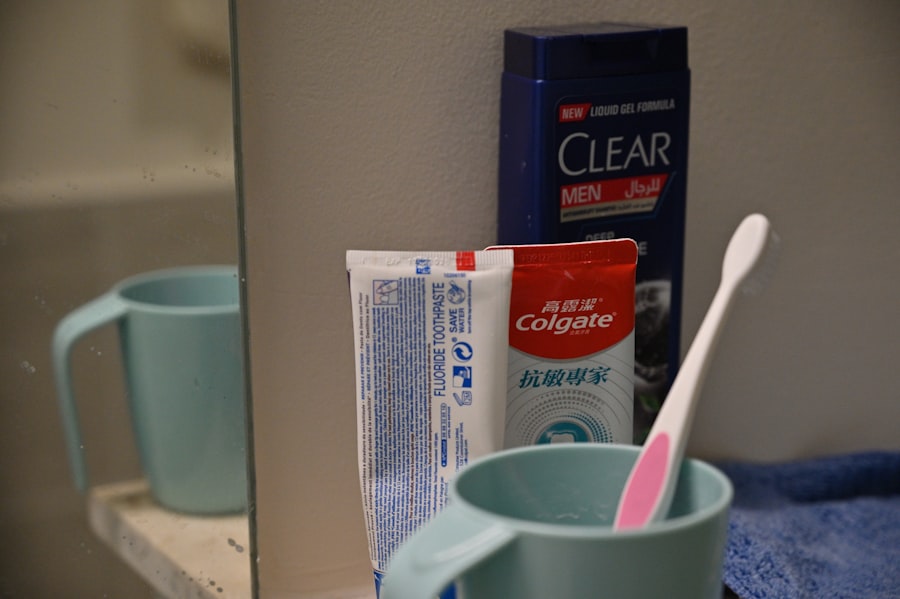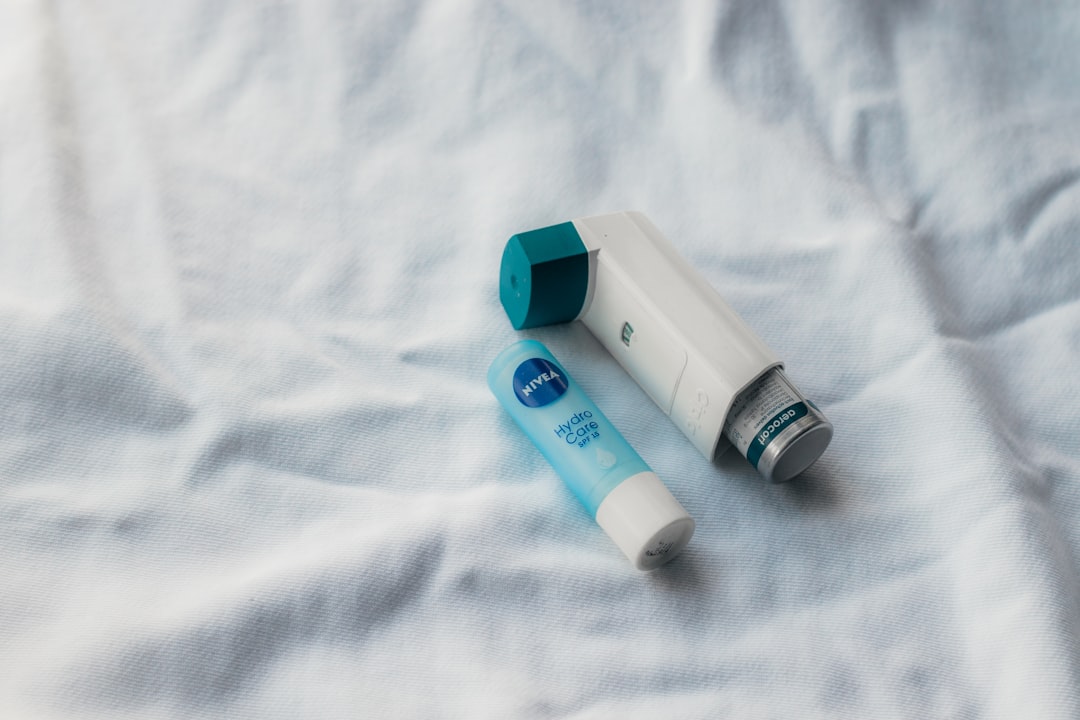When you think about oral hygiene, the importance of toothpaste cannot be overstated. Antibacterial toothpaste is specifically formulated to combat harmful bacteria in your mouth, which can lead to various dental issues such as cavities and gum disease. These specialized toothpastes contain active ingredients designed to reduce bacterial growth, thereby promoting a healthier oral environment.
By using antibacterial toothpaste, you are taking a proactive step toward maintaining your dental health and preventing potential problems before they arise. The concept of antibacterial toothpaste is rooted in the understanding that your mouth is home to a diverse array of bacteria. While some of these bacteria are beneficial, others can be detrimental to your oral health.
Antibacterial toothpaste aims to create an imbalance in favor of the good bacteria by reducing the population of harmful ones. This not only helps in keeping your teeth clean but also contributes to fresher breath and overall oral well-being. As you explore the world of dental care products, understanding the role of antibacterial toothpaste can empower you to make informed choices for your oral hygiene routine.
Key Takeaways
- Antibacterial toothpaste contains agents that help fight bacteria in the mouth, reducing the risk of oral infections and diseases.
- Common antibacterial agents in toothpaste include triclosan, cetylpyridinium chloride, and essential oils like eucalyptus and tea tree oil.
- Research suggests that antibacterial toothpaste can be effective in reducing plaque, gingivitis, and bad breath when used as part of a good oral hygiene routine.
- Using antibacterial toothpaste may offer benefits such as improved gum health, reduced risk of cavities, and fresher breath.
- However, concerns and risks associated with antibacterial toothpaste include potential antibiotic resistance and disruption of the oral microbiome.
Common Antibacterial Agents in Toothpaste
In your quest for effective oral care, it’s essential to familiarize yourself with the common antibacterial agents found in toothpaste. One of the most prevalent ingredients is triclosan, a compound known for its ability to inhibit bacterial growth. Triclosan works by disrupting the cellular processes of bacteria, making it less effective at causing harm.
However, its use has been met with scrutiny due to concerns about potential long-term effects on health and the environment. Another widely used antibacterial agent is chlorhexidine, which is often found in prescription-strength toothpaste. Chlorhexidine is particularly effective against a broad spectrum of bacteria and is frequently recommended for individuals with gum disease or those undergoing dental procedures.
Its strong antibacterial properties make it a powerful ally in your fight against oral infections. Understanding these agents can help you make better choices when selecting toothpaste that aligns with your specific dental needs.
Effectiveness of Antibacterial Toothpaste

The effectiveness of antibacterial toothpaste is a topic of considerable interest among dental professionals and consumers alike. Research indicates that these toothpastes can significantly reduce plaque formation and gingivitis when used as part of a regular oral hygiene routine. By targeting harmful bacteria, antibacterial toothpaste can help maintain healthier gums and teeth, ultimately leading to a lower risk of cavities and periodontal disease.
However, it’s important to note that while antibacterial toothpaste can be beneficial, it is not a substitute for regular dental check-ups and professional cleanings. The effectiveness of these products also depends on proper brushing techniques and consistency in usage. You should aim to brush at least twice a day for two minutes each time, ensuring that you cover all surfaces of your teeth.
By combining the use of antibacterial toothpaste with good oral hygiene practices, you can maximize its benefits and achieve optimal dental health.
Potential Benefits of Using Antibacterial Toothpaste
| Benefit | Description |
|---|---|
| Reduced Plaque | Antibacterial toothpaste can help reduce plaque buildup on teeth. |
| Gum Health | It may help improve gum health by reducing bacteria that can cause gum disease. |
| Cavity Prevention | Antibacterial properties can help prevent cavities by targeting harmful bacteria. |
| Fresh Breath | It can contribute to fresher breath by reducing odor-causing bacteria in the mouth. |
Using antibacterial toothpaste offers several potential benefits that can enhance your oral hygiene routine. One of the most significant advantages is its ability to reduce plaque buildup, which is a sticky film of bacteria that forms on your teeth. By minimizing plaque accumulation, you can lower your risk of developing cavities and gum disease, leading to healthier teeth and gums over time.
Additionally, antibacterial toothpaste can help combat bad breath by targeting the bacteria responsible for unpleasant odors. Many people struggle with halitosis, and incorporating an antibacterial toothpaste into your daily routine can provide a simple yet effective solution. The freshening agents often included in these formulations can leave your mouth feeling clean and revitalized, boosting your confidence throughout the day.
Overall, the potential benefits of using antibacterial toothpaste extend beyond just cleaning your teeth; they contribute to a more comprehensive approach to oral health.
Concerns and Risks Associated with Antibacterial Toothpaste
Despite the advantages of antibacterial toothpaste, there are concerns and risks that you should be aware of before making it a staple in your dental care routine. One major concern revolves around the long-term effects of certain antibacterial agents, such as triclosan. Studies have suggested that prolonged exposure to triclosan may lead to antibiotic resistance, which could render some antibiotics less effective in treating infections.
Moreover, some individuals may experience allergic reactions or sensitivities to specific ingredients found in antibacterial toothpaste. Symptoms can range from mild irritation to more severe reactions, making it crucial for you to pay attention to how your body responds after using these products. If you notice any adverse effects, it’s advisable to discontinue use and consult with a healthcare professional for guidance on alternative options.
How to Identify Antibacterial Toothpaste

Identifying antibacterial toothpaste is relatively straightforward once you know what to look for on the packaging. Most brands will prominently display terms like “antibacterial,” “antimicrobial,” or “kills germs” on the front label. Additionally, you can check the ingredient list for common antibacterial agents such as triclosan or chlorhexidine, which indicate that the product has been formulated with specific bacteria-fighting properties.
Another useful tip is to look for endorsements from dental associations or organizations that highlight the product’s effectiveness in promoting oral health. These endorsements often serve as a seal of approval, giving you added confidence in your choice. By being vigilant about reading labels and understanding what constitutes antibacterial properties, you can make informed decisions when selecting toothpaste that meets your needs.
Alternatives to Antibacterial Toothpaste
If you have concerns about using antibacterial toothpaste or prefer a more natural approach to oral care, there are several alternatives available that can still promote good dental hygiene. One option is fluoride toothpaste, which helps strengthen tooth enamel and prevent cavities without necessarily containing antibacterial agents. Fluoride works by remineralizing teeth and making them more resistant to decay.
Another alternative is herbal or natural toothpastes that utilize plant-based ingredients known for their antimicrobial properties. Ingredients like tea tree oil, neem, and peppermint oil are often included in these formulations and can provide a gentler approach to maintaining oral health while still addressing bacterial concerns. Exploring these alternatives allows you to tailor your dental care routine according to your preferences and values.
Recommendations for Choosing the Right Toothpaste
When it comes to choosing the right toothpaste for your needs, several factors should guide your decision-making process. First and foremost, consider any specific dental issues you may have, such as sensitivity or gum disease. If you experience sensitivity, look for toothpaste designed specifically for sensitive teeth that can help alleviate discomfort while still providing effective cleaning.
Fluoride is a crucial component in preventing cavities and strengthening enamel, so opting for a fluoride-containing product is generally recommended unless otherwise advised by your dentist. Lastly, don’t hesitate to seek recommendations from your dentist or dental hygienist; they can provide personalized advice based on your unique oral health needs.
The Role of Fluoride in Toothpaste
Fluoride plays a vital role in maintaining oral health and is one of the most researched ingredients in dental care products. It works by remineralizing tooth enamel and making it more resistant to acid attacks from plaque bacteria and sugars in the mouth. This protective effect significantly reduces the risk of cavities and decay over time.
Incorporating fluoride toothpaste into your daily routine is essential for both children and adults alike. For children, fluoride helps establish strong teeth during their formative years, while adults benefit from its protective properties as they age. However, it’s important to use fluoride toothpaste as directed; excessive ingestion of fluoride can lead to dental fluorosis in children or other health concerns in adults.
Striking a balance is key to reaping the benefits without encountering potential risks.
Tips for Maintaining Oral Hygiene
Maintaining optimal oral hygiene goes beyond just choosing the right toothpaste; it involves adopting a comprehensive approach to dental care. One fundamental tip is to brush your teeth at least twice a day using proper techniques—this means using gentle circular motions and ensuring you cover all surfaces of each tooth. Don’t forget to brush your tongue as well; this area can harbor bacteria that contribute to bad breath.
Flossing daily is another crucial aspect of maintaining oral hygiene that many people overlook. Flossing helps remove food particles and plaque from between teeth where toothbrush bristles may not reach effectively. Additionally, consider incorporating mouthwash into your routine for an extra layer of protection against bacteria and bad breath.
Regular visits to your dentist for check-ups and cleanings are also essential; they can catch potential issues early on and provide professional guidance tailored to your needs.
Consulting a Dentist about Antibacterial Toothpaste
If you’re uncertain about whether antibacterial toothpaste is right for you or have specific concerns regarding its use, consulting with your dentist is always a wise decision. Your dentist can assess your individual oral health needs and recommend products that align with those requirements. They may also provide insights into any potential risks associated with certain ingredients based on your medical history or existing conditions.
Moreover, discussing your oral hygiene routine with your dentist allows for personalized recommendations that go beyond just toothpaste selection.
By engaging in open communication with your dentist, you empower yourself with knowledge that can lead to better overall dental health outcomes.
In conclusion, understanding antibacterial toothpaste involves recognizing its purpose, effectiveness, benefits, and potential risks associated with its use. By being informed about common ingredients and alternatives available on the market, you can make educated choices tailored to your unique needs while maintaining optimal oral hygiene practices.
If you’re curious about the antibacterial properties of your toothpaste, you might find it interesting to read more about oral hygiene practices in general. A related article that delves into various aspects of dental care can be found here. This resource provides valuable insights that can enhance your understanding of how different products, including toothpaste, contribute to maintaining oral health.
WATCH THIS! The $14 Billion Lie Hiding in America’s Drugstore
FAQs
What is antibacterial toothpaste?
Antibacterial toothpaste contains ingredients that are designed to help reduce the amount of bacteria in the mouth, which can help prevent dental issues such as gum disease and tooth decay.
How does antibacterial toothpaste work?
Antibacterial toothpaste typically contains ingredients such as triclosan, which can help to reduce the amount of bacteria in the mouth by disrupting their cell walls and inhibiting their growth.
Is all toothpaste antibacterial?
No, not all toothpaste is antibacterial. Regular toothpaste is designed to help clean the teeth and freshen breath, but it may not contain specific antibacterial ingredients.
Are there any potential risks or side effects of using antibacterial toothpaste?
Some studies have raised concerns about the potential for antibacterial ingredients such as triclosan to contribute to antibiotic resistance. It’s important to use antibacterial toothpaste as directed and to consult with a dentist if you have any concerns.
Can antibacterial toothpaste replace regular dental care?
While antibacterial toothpaste can be a helpful part of a dental care routine, it is not a substitute for regular brushing, flossing, and professional dental cleanings. It’s important to maintain a comprehensive oral hygiene routine for optimal dental health.
